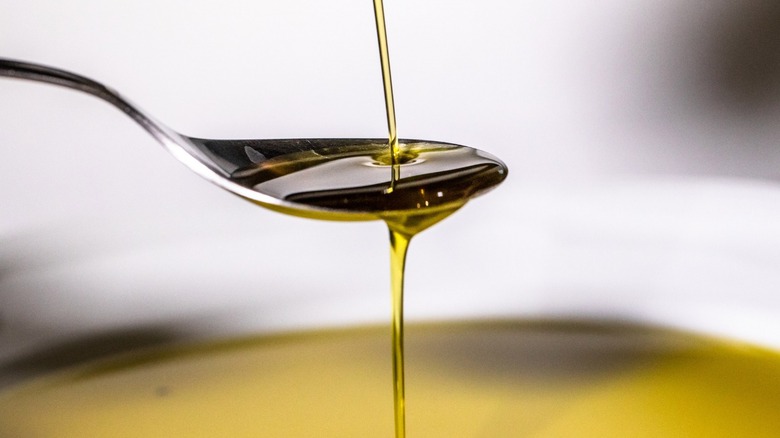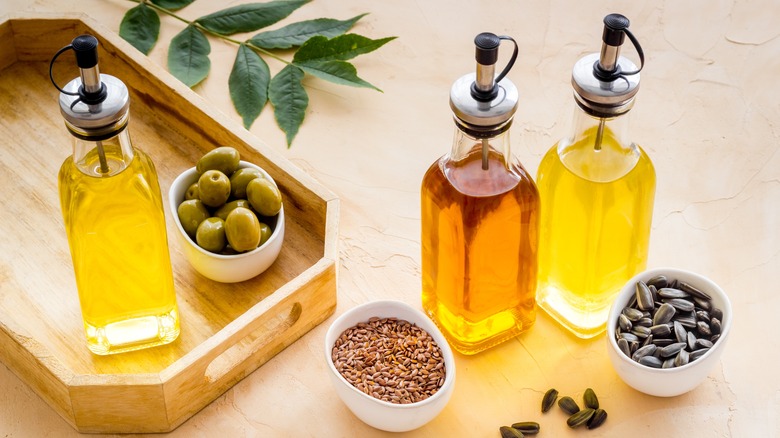How To Tell If You Should Use Vegetable Oil Or Olive Oil
Even the most basic dishes begin with a drizzle of oil. If you're sautéing, you'll want to coat the pan in oil before adding your ingredients. If you're roasting, you'll want to coat your ingredients before putting them in the pan. Olive oil and vegetable oil are two of the most commonly used varieties, according to Healthline.
Before oils get bottled and stocked on store shelves, they undergo a process of cleaning and purification. The more processed the oil is, the fewer nutrients and flavors it retains, per Healthline. Olive oil is minimally processed, which explains why it has a deeper flavor. Vegetable oil is highly processed and therefore has a neutral flavor.
This process of purifying the oils adds chemicals and also strips them of their nutrients, according to Medical News Today. That's why olive oil is high in antioxidants and anti-inflammatory compounds, and vegetable oil is chock full of polyunsaturated fats, which are low in nutrition.
There's a time and place to use both of these oils. But these circumstances vary based on what you're cooking.
When to use olive oil and vegetable oil
In addition to their differences in flavors and nutrients, olive oil and vegetable oil have different uses, too. Although olive oil actually has a similar smoke point to vegetable oil, you should still opt for vegetable oil when cooking at high temperatures due to its higher smoke point, says MasterClass. Vegetable oil is virtually flavorless if you want the flavors from your other ingredients to shine through. It's also inexpensive, which makes it a great option for deep frying when you use a substantial amount of oil to fully submerge your ingredients.
According to The North American Olive Oil Association, olive oil is the most stable liquid cooking fat, making it a great option for most cooking temperatures. The strong flavor of olive oil contributes to many different kinds of dishes and generally complements its flavors. Olive oil can be a great addition to marinades and salad dressings, or to drizzle over your finished product, which can add richness and body.

